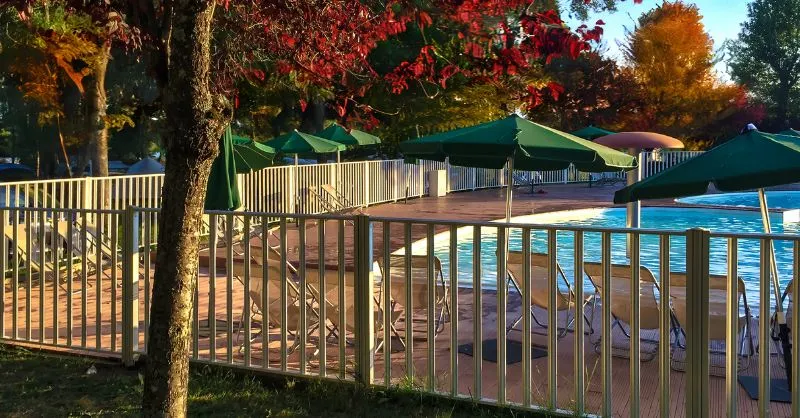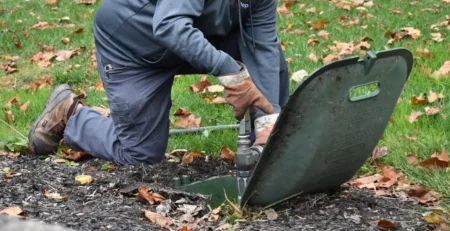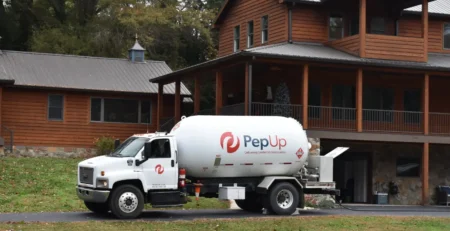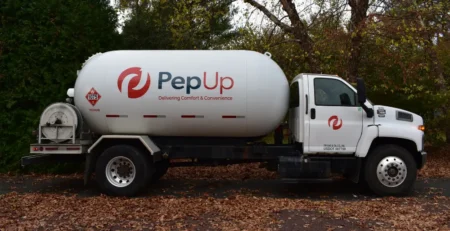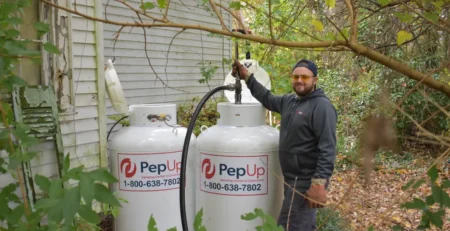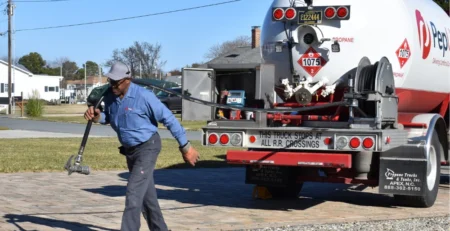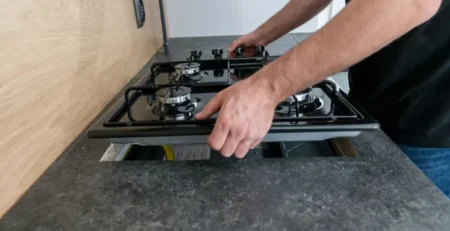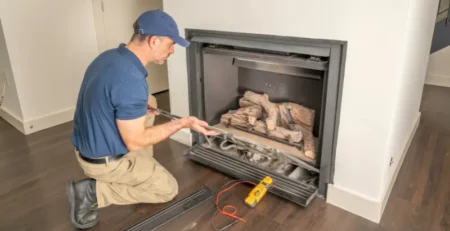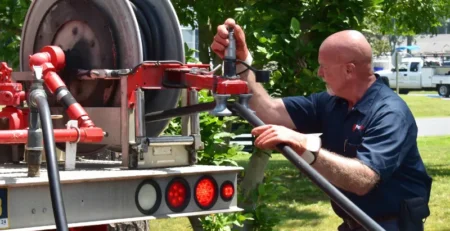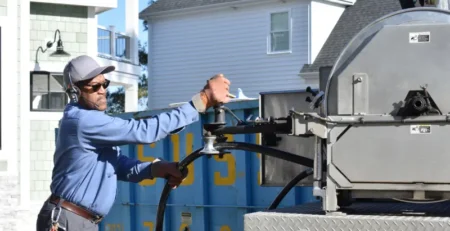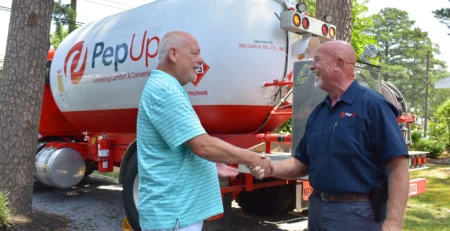Checklist: Selecting the best LP gas pool heater
If you’re considering warming up your pool during the cooler months with a propane (LP) gas pool heater, you’re in good company. Many PepUp customers aren’t aware that propane pool heaters are an option, so we put together a 10-point checklist to help our customers make the most informed choice when shopping for an LP gas pool heater.
10-Point checklist for choosing the right LP gas pool heater
1. Determine pool size and volume
LP gas pool heaters come in different sizes, as indicated by the BTU (British Thermal Unit) measurement. Your pool’s size – in terms of the volume of water it holds – will determine how many BTUs you’ll need to heat your pool to the temperature you want. Use this guide from the U.S. Department of Energy to calculate the size of your pool, and the BTU size of the heater you’ll need to keep it warm.
2. Consider the local climate and annual heating degree days
The Delmarva Peninsula climate varies, and your heater’s efficiency can be influenced by outdoor temperatures, wind, and humidity. Understanding your local environment and the microclimate around your pool will help you choose a heater with the right insulation and heating capacity for optimal performance year-round.
3. Assess propane availability and adequate tank size
LP gas pool heaters need a reliable and permanently connected source of propane. Make sure your home propane tank size is large enough to support a pool heater, based on how frequently you plan to use the heater. Regular deliveries from PepUp ensure you never run out of fuel, so your pool heater can work continuously to keep your pool at a constant temperature any time of year. Also, consider the feasibility and cost of running a propane gas line to your pool heater, if you’re installing a propane-powered unit for the first time.
4. Ask about heater location and installation space
Ensure you have the appropriate space for heater unit installation. The heater should have adequate ventilation, access for maintenance, and be away from windows and doors to meet safety standards. Proximity to your LPG tank should also be considered, since a closer location will reduce the cost of gas line installation. Request a consultation with a PepUp technician to determine the best location.
5. Review energy efficiency and performance ratings
Aim for a model with a high efficiency rating (measured by its coefficient of performance, or COP). Efficient LP gas pool heaters reduce operational costs and environmental impact. Look for Energy Star-certified models for the most efficient performance.
6. Budget for installation, operation, and maintenance
Consider your budget, including installation, increased annual propane use, and long-term operational costs. While higher-end models may have a steeper initial investment, many times they offer greater efficiency and lower long-term fuel costs.
7. Consider long-term maintenance requirements
Routine maintenance ensures your LP gas pool heater operates efficiently and lasts as long as possible. Check the maintenance requirements for different models as you shop. Compare the requirements and cadence of regular cleaning, checks for leaks, and burner inspections.
8. Learn more about warranty and service support
A thorough pool heater warranty protects you against manufacturing defects and offers peace of mind. Check the warranty duration and what’s covered, and choose a model with a 2-year parts and labor warranty if you can find it. Pool heaters last 10-15 years, so keep that in mind when looking at warranties as part of your long-term investment consideration.
9. Don’t compromise on essential safety features
Safety is crucial when dealing with any liquid petroleum product. Modern LP gas pool heaters come with safety features such as automatic shut-off, low-pressure gas sensors, and robust ventilation systems. Confirm these features are in place for your chosen model.
10. Check on local regulations and permits
Before you sign on the dotted line, verify any local regulations and required permits for installing an LP gas pool heater. Anyone who sells and installs pool heaters should be able to speak to local codes and handle permitting so you’re on the up and up.
How can PepUp help you enjoy your pool more each year?
Adding an LP gas pool heater can extend the swimming season for your family and guests. Follow this checklist to choose the heater system that balances efficiency, cost, and safety. Feel free to reach out to our team for personalized advice or to schedule gas line installation and pressure testing for safety.
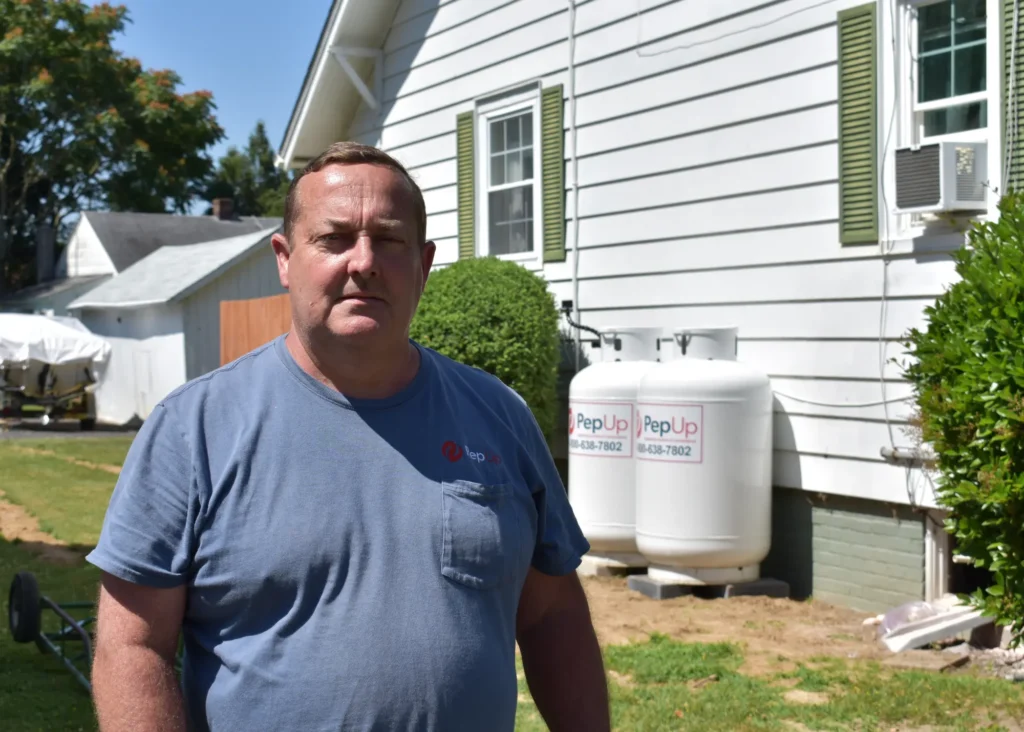
Meet Contributor and PepUp Propane Technician, Jay Smith
Jay, a propane service technician, joined our crew in 2016. His skill set is mainly in appliances such as fireplaces and space heaters, but he also helps with installation services.

